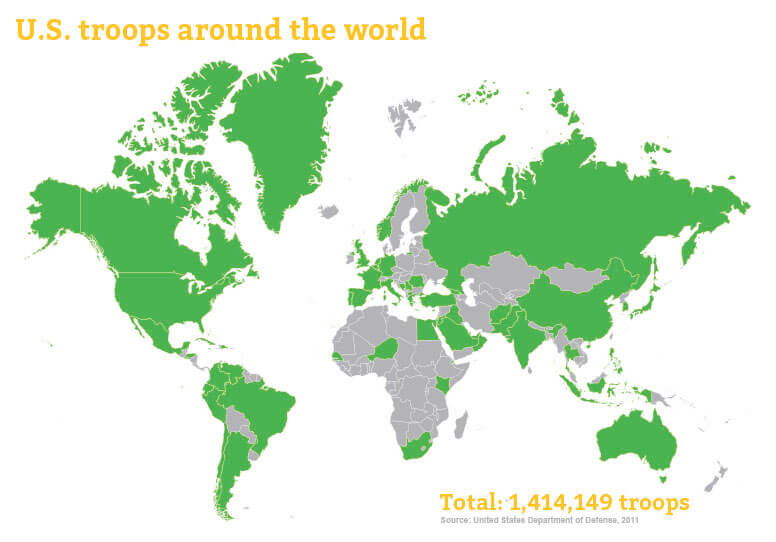For DoD, pursuing cloud solutions isn’t just about cutting costs and increasing storage space. It is driven by its Cloud Computing Goal to “implement cloud computing as the means to deliver the most innovative, efficient, and secure information and IT services in support of the Department’s mission, anywhere, anytime, on any authorized device.” A well integrated and implemented cloud solution has the potential to elevate end user engagement, generate timely decision support information and provide ic tools to improve mission performance.
“Elevating user engagement and generating actionable business intelligence are all things a robust cloud solution can do.”
Increasingly, companies are looking for cloud solutions that will enable them to fulfill these goals – and that’s why so many businesses have their eyes on Oracle.
As a provider of integrated cloud applications, Oracle is setting the bar high as far as software-as-a-service (SaaS) and platform-as-a-service (PaaS) solutions. As Executive Chairman and CTO Larry Ellison pointed out, the company’s previous cloud technology represented its “startup phase.” Now is the time when Oracle is really starting to gain momentum.
The evolving nature of the business was evident in Oracle’s release of Service Cloud, a SaaS tool aimed at providing users with a solution that truly maximizes the benefits of cloud computing. Since its debut, Service Cloud has been generating a lot of positive attention, and that attention only increased when it was announced that the U.S. Department of Defense is using it.
 The U.S. Department of Defense is using Oracle Service Cloud, which will allow it to improve productivity while maintaining security.
The U.S. Department of Defense is using Oracle Service Cloud, which will allow it to improve productivity while maintaining security.DoD harnessing the power of Service Cloud
At the beginning of September, Oracle announced that the DoD had granted the company an Authority to Operate (ATO) for Oracle Service Cloud. The ATO granted operational access at Security Level 4, which, according to the DoD, encompasses controlled unclassified information (CUI) or non-CUI critical mission information. In order to receive that level of ATO, Oracle had to undergo a comprehensive third-party review.
Now that the DoD has granted Oracle the ATO, Group VP of Oracle Service Cloud David Vap said the DoD can expect a cloud service that meets high standards in terms of functionality and security.
“The Department of Defense can now procure commercial cloud services in order to meet dynamic user needs, improve efficiency and drive greater productivity while at the same time, have assurances that Oracle Service Cloud delivers against process and security control requirements,” Vap said.
Now that the DoD has adopted Oracle Service Cloud, it’s drawing even more attention to this SaaS offering. And this attention is fully justified, since Service Cloud offers huge benefits for all users no matter what industry they are in.
Why you should leverage Service Cloud
Whether your industry is life sciences, industrial manufacturing or another business sector, it’s very likely that you’re looking into cloud solutions – if you don’t have them already. For companies looking to maximize their cloud presence, an SaaS solution represents a key way to accomplish this. In terms of SaaS tools, Oracle Service Cloud stands out from the rest by offering users:
- Knowledge management: From knowledge analytics to integrated apps, Service Cloud provides users with the ability to quickly and easily gain access to information contained in disparate networks and systems.
- Web customer service: For the uniformed and civilian customers of DoD activities, the value of a service is largely dependent on the timeliness and quality of its customer service. With Oracle Service Cloud, enterprise users can offer their customers service-based tools that significantly enhance the response times and quality of the customer’s experience. Tools like live chat, online self-service and virtual assistant enable activities deploying Oracle Cloud Service to increase their agility, responsiveness, and ability to serve their customers.
- Field service management: DoD is the quintessential service organization deploying more than 250,000 people to more than 150 countries in more than 1000 bases and ships globally. The increasing sophistication of DoD assets and the highly fluid security environment necessitates a higher degree of local execution with centralized support and resource coordination. Oracle’s Service Cloud’s field service management tools provide enterprises with the routing/scheduling/optimization tools to manage, dispatch and locate resources and materials to meet required need dates and service levels, Oracle Service Cloud not only provides companies with improved remote visibility, but also gives mobile employees a more collaborative and responsive experience.
For businesses, making inroads in the cloud means knowing how your enterprise’s cloud solutions fit within the business’ overall Supply Chain. Cloud Advisory Services can play an important role in seamlessly integrating virtualized solutions within an existing IT strategy, thereby allowing companies to reap the biggest benefits from tools like Oracle Service Cloud.